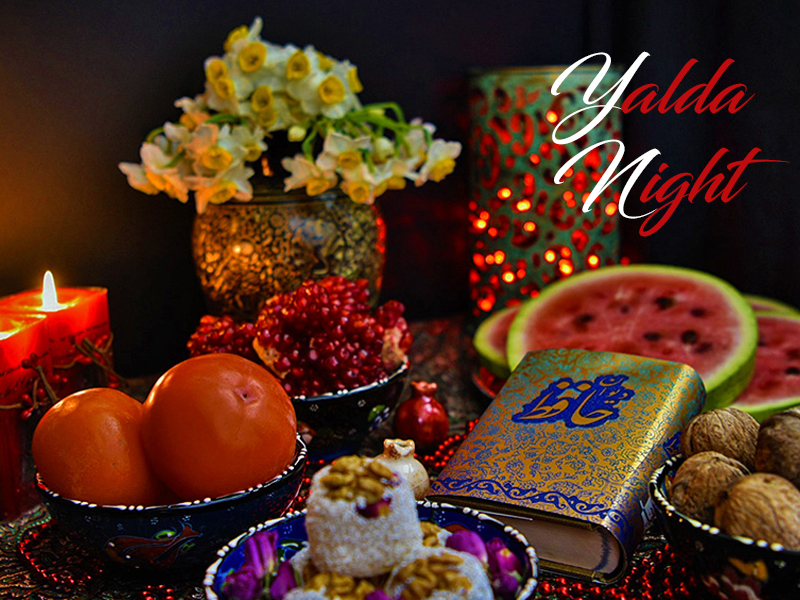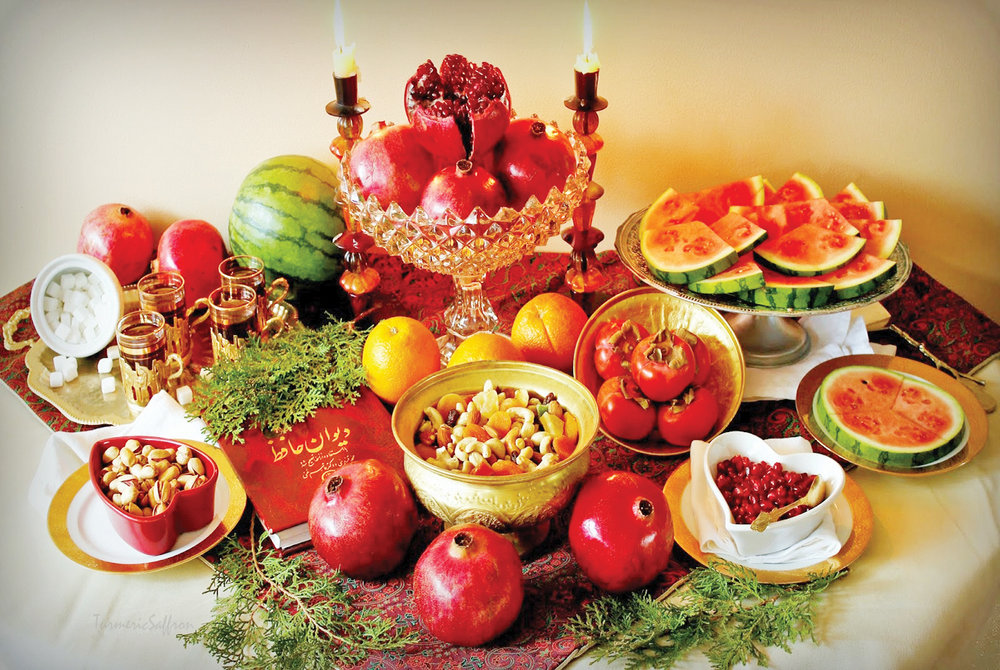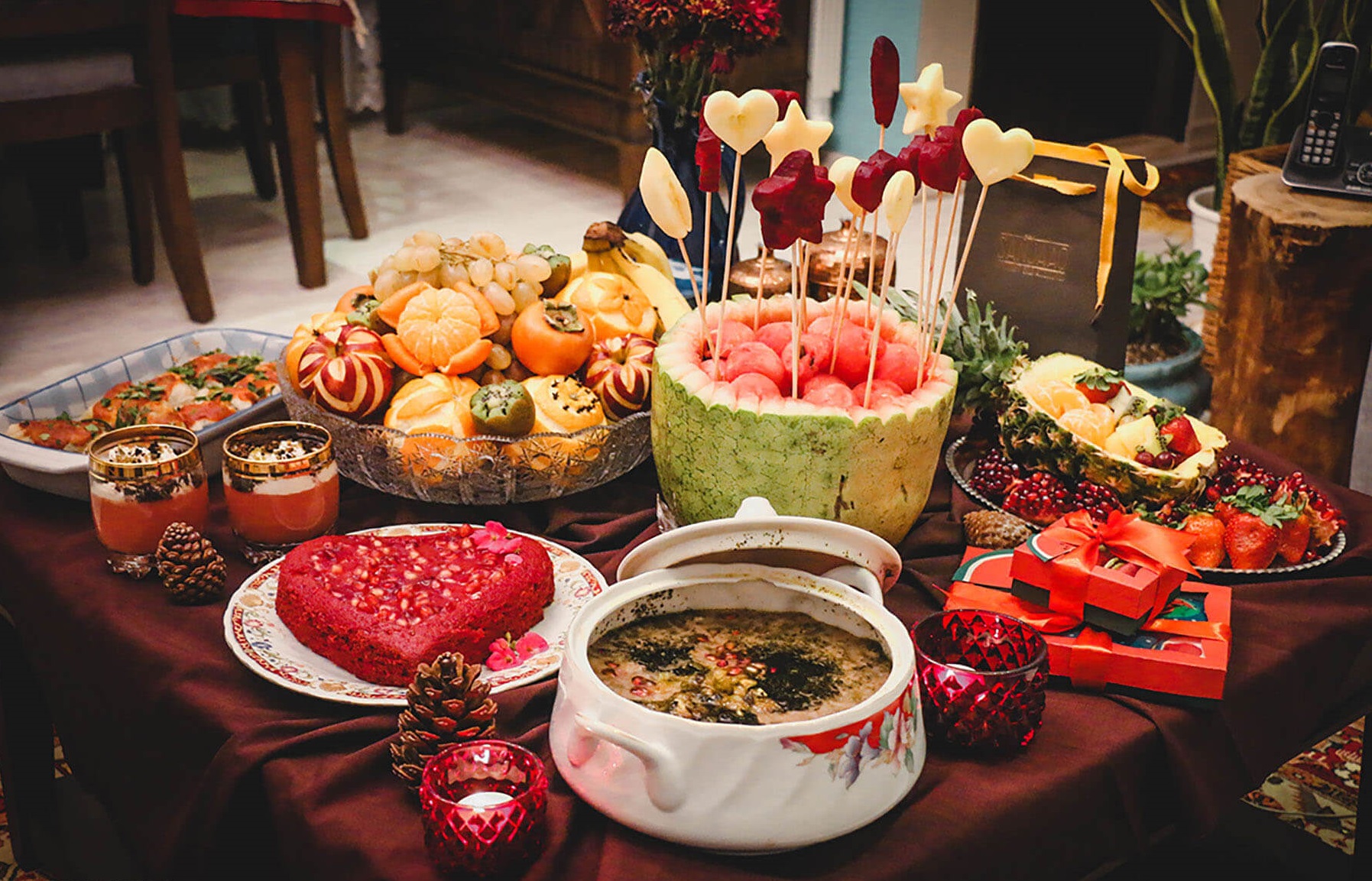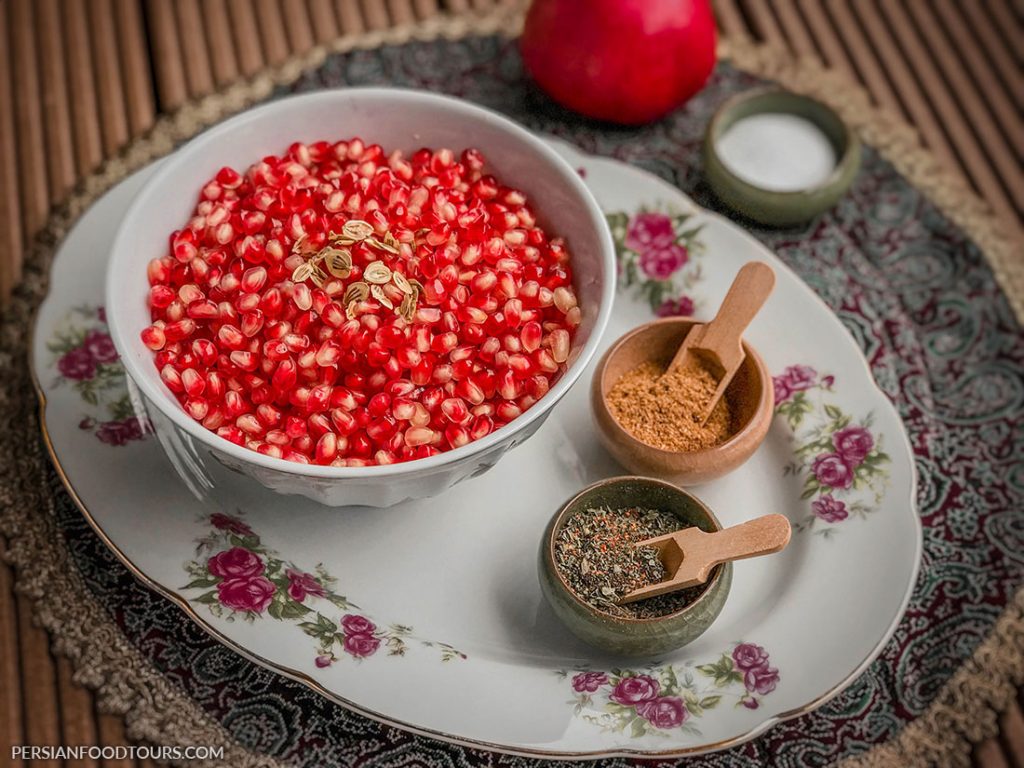
Shab-e Yalda (Yalda Night, Shab-e Chelleh) | Iranian celebration of the longest night of the year
Shab-e Yalda (Yalda Night) or Shab-e Chelleh ("night of forty") is an Iranian tradition in which people celebrate the longest night of the year.
Yalda is a winter solstice celebration that takes place in the night of the Northern Hemisphere's winter solstice. In the Gregorian calendar, this relates to the night of December 20/21. But in the official calendar of Iran, it happens at the night between the last day of the ninth month (Azar) and the first day of the tenth month, Dey.

What is Yalda?
As Christians around the globe get prepared for Christmas, the situation for Iranians is a little different. Although there are Christians inside Iran too, most of the people are getting ready for one of the most important nights of the year, Yalda night or Shab e Chelleh.
This ancient Iranian celebration dates back to the era that a large portion of the people were Zoroastrians in the Persian empire. They believed that evil forces were dominant on the longest night of the year and that the following day, belonged to the Lord of Wisdom, Ahura Mazda.

How is Yalda celebrated?
In the past, people were advised to stay awake most of the night, in case misfortune ought to occur for them. Individuals would then gather in the safety and peace of their friends and relatives groups, share what was left of fruits from the summer, and discover approaches to spend the long night together in good company.
Nowadays, Yalda is a time when loved ones gather together to eat and read poetry (especially Hafez) until midnight and after that. They eat fruits and nuts, especially pomegranates and watermelons are very popular. Old writings indicate that the red color in these fruits symbolizes the red tints of sunrise and sparkle of life, summoning the wonder of Mithra.

In this night, the older members of the family entertain others by disclosing to them stories and anecdotes after having dinner together. Another most-loved prevalent pastime of this night is fāl-e Hafez, which is divination that is done by the Dīvān of Hafez. It is believed that one ought not to divine by the Dīvān of Hafez more than three times since the soul of the poet may get angry.
Yalda reminds us that life is so short that we should celebrate an extra minute of being together.
Generally, activities common to the festival consist of keeping awake after midnight, having conversations, drinking, reading poems out loud so that others can hear, telling stories and jokes, and for some dancing.
Before the invention and prevalence of electricity, decorating and lighting the house and yard with candles was likewise part of the custom, but few have proceeded with this tradition. Another custom is giving dried fruits and nuts to loved ones, wrapped in tulle and tied with a strip (like wedding and shower "take-home gifts"). Before the ban on alcohol, drinking wine was additionally part of the celebration.
An old custom still rehearsed in eastern parts of the country (Khorasan) is the preparation and consumption of "Kaf", which is a sort of sweet that looks like foam. Another custom of specific parts of Iran and Khorasan on the night of Chelleh is related to young engaged couples.
The men send an arrangement of seven kinds of fruits with a variety of gifts to their life partners on this night. In some regions, the lady and her family return the favor by sending some gifts back for the young man.
Yalda Night is one of the few ancient Iranian traditions that is still celebrated by people in Iran and other countries like Afghanistan, Tajikistan, Azerbaijan, Iraqi Kurdistan, and some parts of Turkey.






Leave a Reply
Your email address will not be published. Required fields are marked *
All Comments (0)